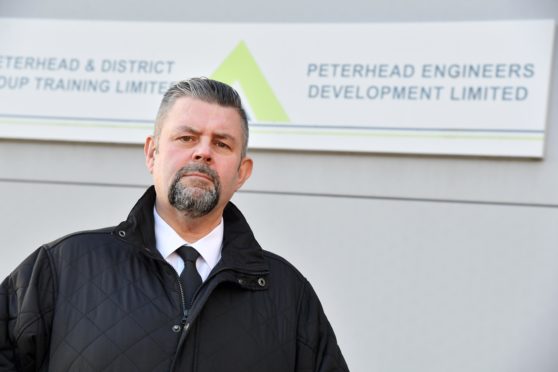A north-east businessman is concerned about the state of secondary education and fears low numeracy and literacy rates could hit his firm’s recruitment efforts.
Conrad Ritchie, a director with Peterhead Engineers Development Limited, has taken on 60 apprentices in the last year.
But he is worried those trainee numbers will dwindle unless something is done to tackle the “free fall” of the education system.
Official data published at the end of 2018 showed four out of five third-year pupils in Aberdeenshire were meeting the literacy curriculum for excellence standard.
Around 75% of north-east youngsters have met the standards for numeracy, which is the national average.
But Mr Ritchie claims the company have had to spend the first three months of the apprenticeship on bringing their maths skills up to the required level.
He employs young people from Peterhead, Fraserburgh and Mintlaw academies.
Mr Ritchie feels the current structure has “failed” the youngsters and he believes ministers in Edinburgh are to blame.
He said: “Our secondary school education system is in free fall.
“It is time that our SNP administration stopped burying their heads in the sand and focused on the day job.
“Our education system was once the envy of the world, but it is now far from satisfactory.
“We have a generation of youth at serious risk of failing to achieve their potential no matter their background.
“This past year, over 60 apprentices were employed from the Buchan area alone; it is fair to say that recruiting these numbers is becoming a real challenge due to the lack of basic literacy and numeracy in our secondary schools.
“Our hard-working teaching staff are trying their best in what can be a very intimidating and lonely position.
“We need to turn back the clock, go back to basics and teach our children in a sustainable, controlled and respected manner.”
Last night, a Scottish Government spokeswoman insisted literacy and numeracy were “educational priorities” for the current administration.
She added: “We are committed to ensuring all children and young people receive the support they need to reach their full potential – and that they do so in the most suitable environment.
“Education authorities are responsible for identifying and meeting the additional support needs of their pupils, including providing appropriate resources, including teaching and support staff, to meet children’s needs.”
